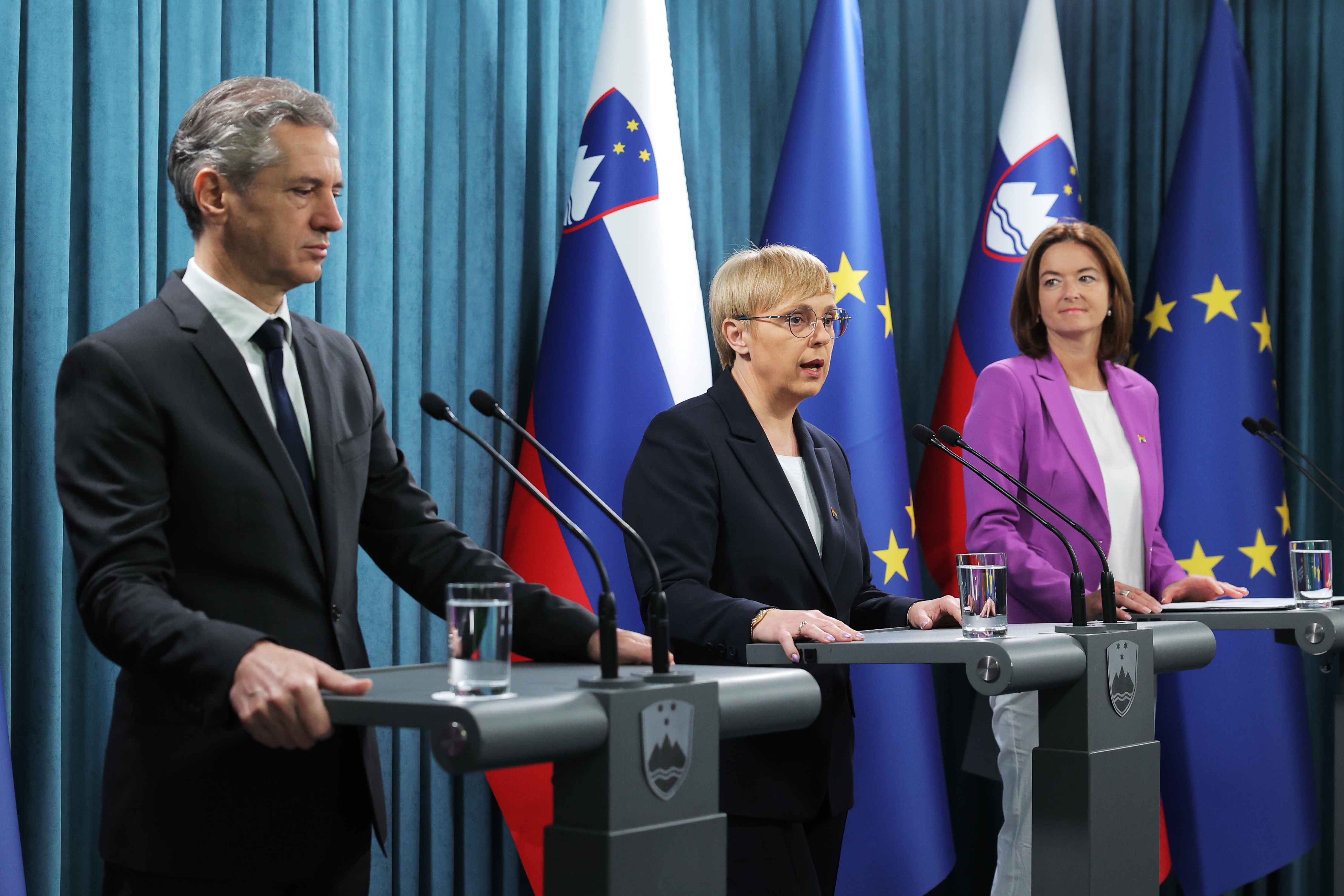
The EU and the Western Balkans: Twenty Years of Hopes and Dreams
Joint statement by the President of the Republic of Slovenia, Nataša Pirc Musar, the Prime Minister of the Republic of Slovenia, Robert Golob, and the Minister of Foreign and European Affairs of the Republic of Slovenia, Tanja Fajon.
Ljubljana, 21 Jun 2023
News
Today, 21 June, marks the 20th anniversary of the EU–Western Balkans Summit in Thessaloniki. On the occasion of this historic event, the European Union and the then accession countries and potential candidate states from the Western Balkans made commitments to each other. The EU reaffirmed that the Western Balkans’ future lies in the EU, and the countries of the region endorsed the EU’s shared values of democracy, the rule of law, respect for human and minority rights, solidarity, and the market economy. The conclusions of the summit remain an abiding commitment for us all – for the EU with its Member States, including Slovenia, and for the Western Balkans.
Slovenia highly values the summit, as it gave new hope for the stabilisation of the region after years of wars, political instability and economic stagnation following the dissolution of Yugoslavia. It gave life to a dream of a European future that would lead to positive changes: increased prosperity, improved connectivity, and enhanced people-to-people contacts.
In the last 20 years, much has been achieved through cooperation. The Western Balkans has seen general stability. The countries of the region today enjoy the benefits of a visa-free regime and the region, where the EU is by far the largest donor and investor, has made economic progress. The EU and the Western Balkans naturally gravitate towards each other.
Slovenia is a strong advocate of the EU enlargement process. It has provided political and practical support to its partners in the Western Balkans. It supports enlargement-related processes in every possible way. This has been a long-term policy for Slovenia and that will not change.
Many opportunities have also been missed on both sides. The initial enthusiasm for reforms in the Western Balkans seems to have waned somewhat over the past two decades. So at the moment, the light at the end of the tunnel for EU membership appears to be further away than we had hoped it would be at this point. However, the EU has been facing its own challenges, where enlargement is not always a priority. The fact that the European Union is now forced to grapple with the consequences of the war in Ukraine has called for a rethink of the approach to the EU enlargement process in general. It is clear that this process is basically a strategic choice and not just a technical task. Nevertheless, further enlargement must follow the fundamental vision of the European integration process, which is based on solidarity and the concrete achievements of the candidate countries. Courageous political decisions are needed.
Our messages to the region, to Europe and to the world are clear. Firstly, the EU is objectively a very good choice for the region, but the Western Balkans countries will decide on their own future. Secondly, Slovenia has no selfish interests in the region. Our policy is driven by solidarity with the countries and people of the Western Balkans. Slovenia wants what its people want: stability and security, which are the prerequisites for prosperity and economic progress.
The Western Balkan countries aspiring to join the EU can count on Slovenia now and in the future.

